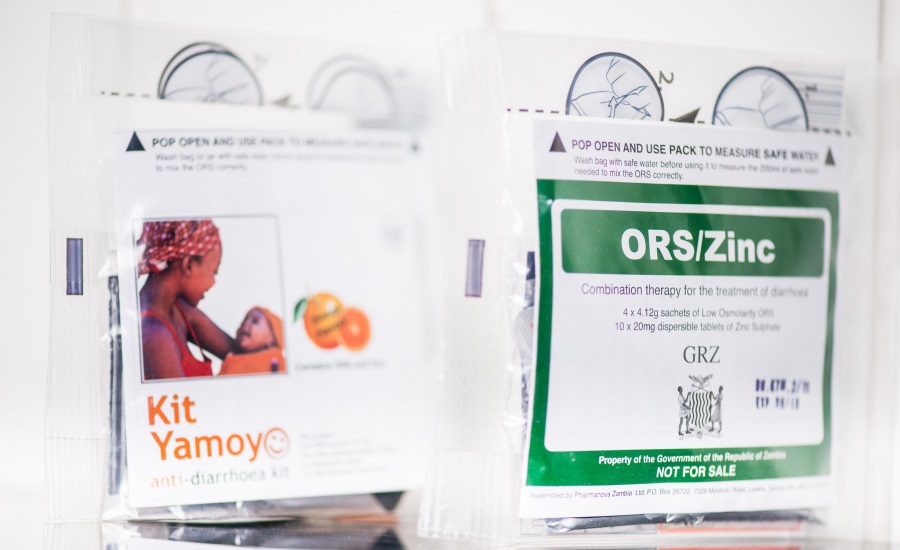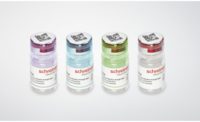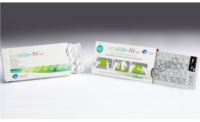ColaLife’s new Kit Yamoyo Flexi-pack

Affordable, desirable, attractive – these are not words you would usually associate with a kit designed to counter childhood diarrhoea in developing countries. Yet this is what UK charity ColaLife (colalife.org) has managed, through listening to customers and a focus packaging – with the help of Amcor Flexibles (amcor.com).
The ‘Kit Yamoyo’ design benefits have now won over the Zambian Ministry of Health – who have placed the first major public sector order for 452,000 kits, to distribute in some of the remotest, highest risk areas of the country. Distribution of the first 30,000 kits is now underway, manufactured locally in Zambia, in an adaptation of the award-winning Kit Yamoyo design which has been adapted to conform to the government’s branding and requirements. Today, ColaLife’s partners Keepers Zambia Foundation (KZF) and Medical Stores Ltd (MSL) signed an agreement for distribution.
This is an excellent achievement and a major boost for the new product, which contains the established global recommendation for treating diarrhoea with Oral Rehydration Salts (ORS) and zinc. In a customer-friendly design breakthrough, the lightweight Flexi-pack offers a measure for the water required to make up each of the four 200ml sachet of ORS packed within it – vital in rural Africa where households rarely have measuring utensils.
Simon Berry, co-founder of ColaLife, comments, “Working closely with our packaging partner Amcor Flexibles, we came up with a way to keep the important functionality and attractiveness of our original trial package while ensuring that the kit comes at a cost that won’t require subsidy. Then Amcor offered the first 870,000 Flexi-packs as a donation – a saving we’ve passed on to our local manufacturer and ultimately the customer.”
The Flexi-pack is ‘flexible’ in other ways too: Keith Gater of Amcor Flexibles says, “The Flexipack is see-through, so the printed leaflet inside, which sits squarely against the front of the pack, can be amended to carry any brand or instructions – adapted to local customs, language or regulations. Another benefit is that the filled pack lays flat improving supply-chain efficiency from packer to wholesaler and it’s easier for retailers to transport by bike.”
Copying the techniques of fast-moving consumer goods, like fizzy drinks, ColaLife has so far focussed on using the informal, private market, encouraging and training small shop-keepers, miles from towns and health centres, to stock the kit. Simon says, “The Zambian Ministry of Health welcomed this model, as it means parents can buy the medicines they need for their children closer to their home. It’s been about working with local people to find out what they really want, not what we
might think they need. Now, seeing the pack’s success, the government is piloting its own version.”
The UK’s Department for International Development is now co-funding a 2.5 year market development programme, to establish Kit Yamoyo in the private and public sector in the capital, Lusaka, beginning in October 2015, as well as a sister project in remote rural areas. This will continue the mission to stop young children dying unnecessarily from easy-to-treat illnesses like diarrhoea.
Looking for a reprint of this article?
From high-res PDFs to custom plaques, order your copy today!






